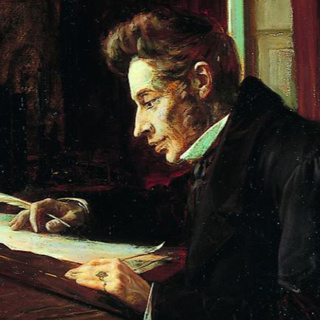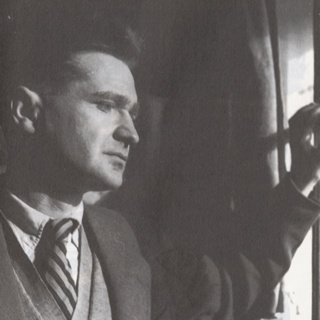
Untimely Reflections #32: Dr. Gregory Sadler - On Stoicism & Philosophy as a Guide to Life
Very pleased to finally be joined by Gregory Sadler on the podcast! Greg is one of the more popular teachers of philosophy in the modern age, and given his recent courses on Stoicism, we decided to make that the focus. I hope you all enjoy our conversation: about philosophy as a guide to life, Stoicism versus Epicureanism, distortions of Stoicism and Nietzsche, whether philosophy is self-help, and the relevance of Stoicism to modern life. Sadler's Lectures on Spotify: https://open.spotify.com/show/0lGAsuWNmAfVKL4KDLDO6v Greg's Youtube Channel: https://www.youtube.com/channel/UCEtxsMx4qsoitFwjBdLU_gA
21 Jan 1h 34min

107: Søren Kierkegaard - Fear & Trembling
Among the 19th century forerunners of existentialism are Friedrich Nietzsche and Søren Kierkegaard. While there is much that divides these two thinkers - one is atheist and the other a Christian, one seeks faith in Fate and the other in God - there are some curious similarities between these two great minds. Kierkegaard is a Christian against Christianity, critiquing the easy optimism or sordid resignation that passed for the Christian faith during his time. Kierkegaard was driven by a desire to become a missionary within Christendom, to make everything harder, and push the ordinary Christian to see faith a paradoxical struggle. The Christian is called to live an absurd life, with impossible hopes, out of the knowledge that nothing is impossible with God. In this episode we discuss Kierkegaard's life, the background of his ideas during the first authorship, and the analysis of Abraham in Fear & Trembling.
14 Jan 1h 23min

106: Emil Cioran - On the Heights of Despair
Cioran is notorious as the depressive philosopher par excellence. While figures such as Schopenhauer, Ligotti and Benatar have advanced logical arguments for their pessimistic outlook, Cioran's work is completely missing any such justification for his depressive feeling for life. Instead, his work is a lyrical outpouring of his inner life. In this episode we're taking a look at his first and most infamous book, "On the Heights of Despair", written during a bout of insomnia. As his translator, Zarifopol-Johnston argues, the book was an attempt to preserve Cioran's real self by "killing" a literary version of himself. We explore this interpretation of Cioran's work: that it is a means of coping with the madness and sorrow he finds within himself, through lyricism. Ironically, a text that was rumored to have caused many suicides may have preserved Cioran's life.
7 Jan 1h 23min

Love Never Faileth (Redux)
This is a revision and re-recording of Episode 04 of the podcast, "Love Never Faileth". I felt that it wasn't my best work in terms of execution, but one of the best episode concepts. As a New Year's special, enjoy this redux of a classic episode. Some parts have been added, some have been removed, and overall I think the lecture flows better and better gets across the ideas I'd originally hoped to convey. We return to regular episodes of the podcast next week.
31 Dec 20241h 1min

Anti-Christmas Special
Is this an anti-Christian screed? Far from it. Today we take a deep dive into one of Nietzsche's core concepts from the Antichrist: the reversal of our understanding of the terms "soul" and "spirit". While many Christians do not even give much thought to the difference between these terms, this was, historically, a key distinction. Nietzsche's great subversion is in critiquing the spirit as a false world, and redefining the soul as a chaotic multiplicity. This radical attack culminates in a suspicion of not only all theology, but all philosophy, all dialectic. Merry Christmas!
24 Dec 202451min

The Gay Science #9 (II.98-II.107)
Finishing book 2 of TGS! This coming Tuesday, a Wandering Above a Sea of Fog episode, then a break for a week. Episode art: Priestess at Delphi by John Collier
21 Nov 20241h 21min

The Gay Science #8 (II.84 - II.97)
Continuing with The Gay Science readthrough! More sections on art, the eternal war between prose and poetry, the Apollinian and Dionysian, and more. Episode art: The Human Condition by Rene Magritte.
14 Nov 20241h 43min

Q&A #11
Patrons: "Have you ever said Yes to a single joy?" Salts: "Yes"
12 Nov 20242h 25min





















